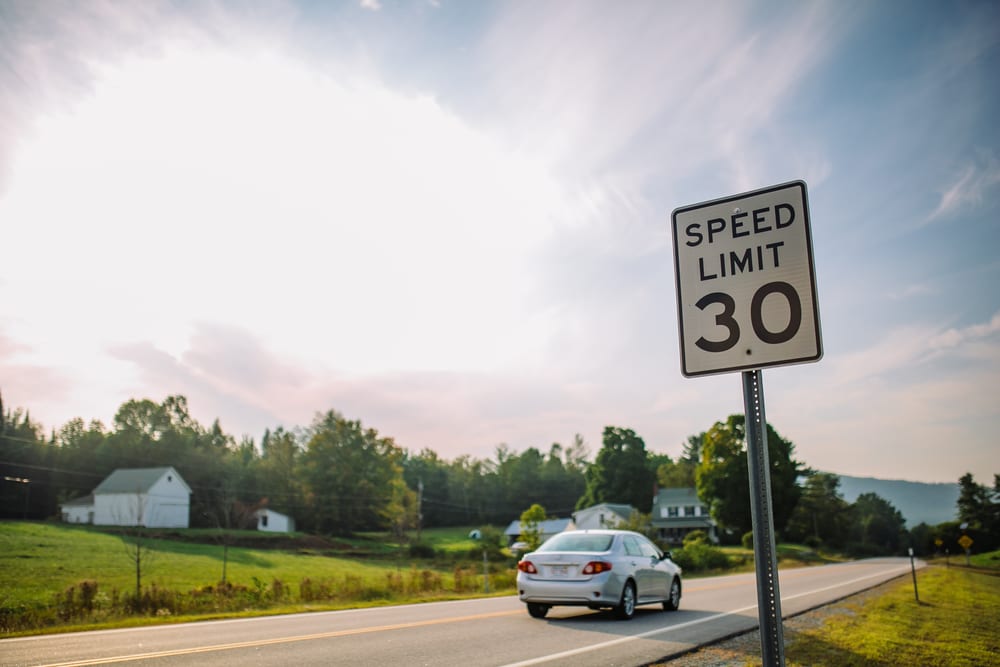

Following is an overview of the laws, limits, and fines as they relate to speeding traffic violations in the state of Indiana.
Speed limits in Indiana
70 mph: interstate highways (for cars)
65 mph: interstate highways (for trucks with a gross vehicular weight of 13 tons or more)
65 mph: interstate highways (cars in suburban areas)
60 mph: interstate highways (trucks in suburban areas)
55 mph: interstate highways in urban areas
30 mph: maximum speed limit in residential areas (may be as low as 20)
30 mph: urban districts
20-25 mph: school zones during posted hours
15 mph: alleys
Divided highway and other freeway speed limits may vary depending upon the type of area they pass through, and are as posted.
Indiana code on reasonable and prudent speed
Maximum speed law:
According to section 9-21-5 of Indiana vehicle code, “A person shall not drive a vehicle upon any highway at a speed that is greater than is reasonable and proper with regard to traffic conditions and the use of the highway, or endangers the safety of any person or property.”
Minimum speed law:
According to section 9-21-5-7 of Indiana vehicle code, “No person shall drive a motor vehicle at such slow speed as to impede or block the normal and reasonable movement of traffic.”
In addition, section 9-21-5-9 states, “A person driving at less than the normal speed of traffic shall drive in the right-hand lane available for traffic or as close as practicable to the right-hand curb or edge of the roadway.”
Due to variations in speedometer calibration, tire size, and margins of error in speed-detecting technology, it’s uncommon for an officer to pull a driver over for going less than five miles above the speed limit. However, technically any amount over can be considered a speed violation so best practices are to stay within the limit.
While it may be difficult to fight a speeding ticket in Indiana due to the absolute speed limit law, a driver may choose to go to court and claim their innocence based upon one of the following:
The driver may oppose the determination of speed. In order to claim this defense a driver must know how his or her speed was determined and then learn how to disprove its accuracy.
A driver may claim that an emergency situation caused the driver to break the speed limit in order to prevent injury or damage to themselves or others.
The driver may claim a case of mistaken identity. If a police officer clocks a driver speeding and subsequently has to find them again in traffic, it’s possible that they could have made a mistake and pulled the wrong car over.
Penalty for exceeding the speed limit in Indiana
First-time violators may:
Be fined up to $500
Have their license suspended for up to between one and five years
Penalty for reckless driving in Indiana
In this state, traveling 30 mph or more over the speed limit is automatically considered reckless driving.
First-time violators may:
Be fined up to $1,000
Be sentenced to up to 180 days of jail time
Have their license suspended for up to one year
Violators may be required to attend traffic school, and/or may be able to have their speeding fine reduced by attending these classes.



